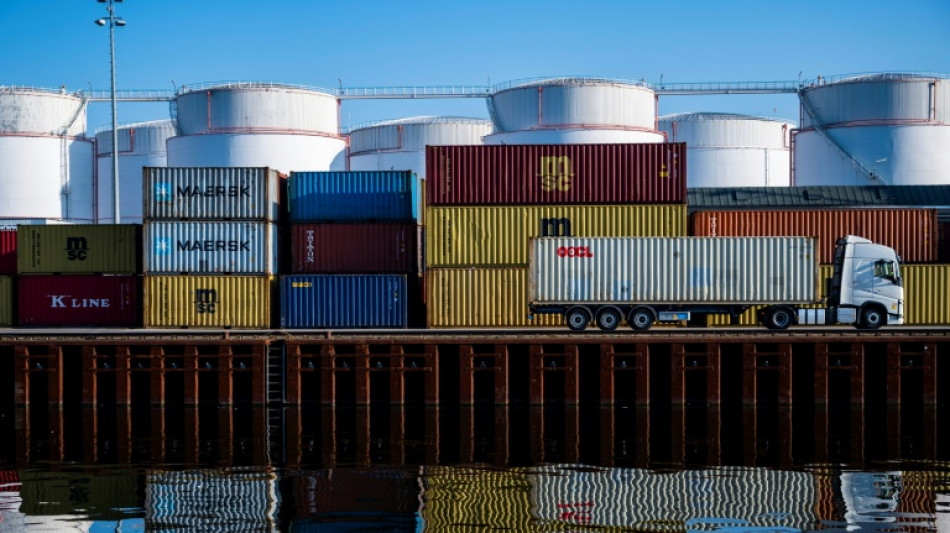
-
 Ex-model testifies in NY court that Weinstein assaulted her at 16
Ex-model testifies in NY court that Weinstein assaulted her at 16
-
'Great honor': world leaders welcome first US pope

-
 Pacquiao to un-retire and fight Barrios for welterweight title: report
Pacquiao to un-retire and fight Barrios for welterweight title: report
-
Trump unveils UK trade deal, first since tariff blitz

-
 Man Utd one step away from Europa League glory despite horror season
Man Utd one step away from Europa League glory despite horror season
-
Jeeno shines on greens to grab LPGA lead at Liberty National

-
 Mitchell fires PGA career-low 61 to grab Truist lead
Mitchell fires PGA career-low 61 to grab Truist lead
-
AI tool uses selfies to predict biological age and cancer survival

-
 Extremely online new pope unafraid to talk politics
Extremely online new pope unafraid to talk politics
-
Postecoglou hits back as Spurs reach Europa League final

-
 Chelsea ease into Conference League final against Betis
Chelsea ease into Conference League final against Betis
-
Pope Leo XIV: Soft-spoken American spent decades amid poor in Peru

-
 First US pope shared articles critical of Trump, Vance
First US pope shared articles critical of Trump, Vance
-
'Inexcusable' - NBA champs Boston in trouble after letting big leads slip

-
 US automakers blast Trump's UK trade deal
US automakers blast Trump's UK trade deal
-
Stocks mostly rise as US-UK unveil trade deal

-
 Trump presses Russia for unconditional 30-day Ukraine ceasefire
Trump presses Russia for unconditional 30-day Ukraine ceasefire
-
Anything but Europa League glory 'means nothing' for Man Utd: Amorim

-
 'Inexcuseable' - NBA champs Boston in trouble after letting big leads slip
'Inexcuseable' - NBA champs Boston in trouble after letting big leads slip
-
Pope Leo 'fell in love with Peru'and ceviche: Peru bishop

-
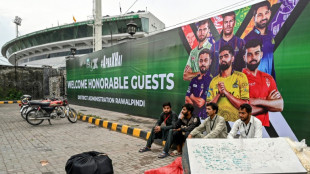 Pakistan's T20 cricket league moved to UAE over India conflict
Pakistan's T20 cricket league moved to UAE over India conflict
-
India tells X to block over 8,000 accounts
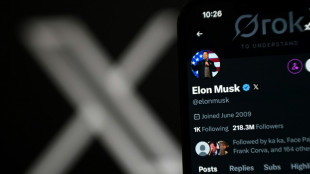
-
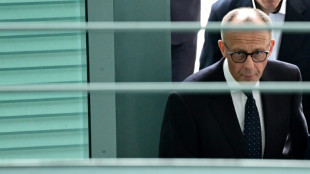 Germany's Merz tells Trump US remains 'indispensable' friend
Germany's Merz tells Trump US remains 'indispensable' friend
-
Ex-model testifies in NY court that Weinstein assaulted her as a minor
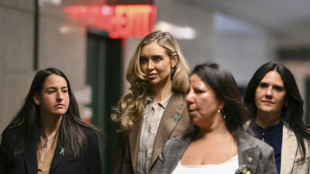
-
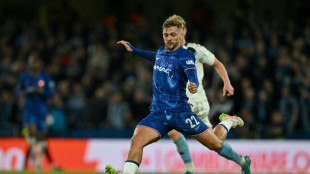 Chelsea ease past Djurgarden to reach Conference League final
Chelsea ease past Djurgarden to reach Conference League final
-
Man Utd crush Athletic Bilbao to set up Spurs Europa League final
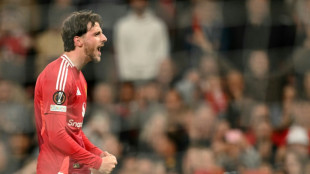
-
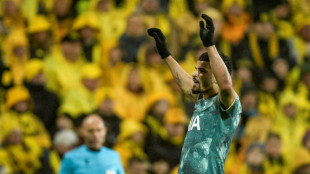 Spurs reach Europa League final to keep Postecoglou's trophy boast alive
Spurs reach Europa League final to keep Postecoglou's trophy boast alive
-
US unveils ambitious air traffic control upgrade
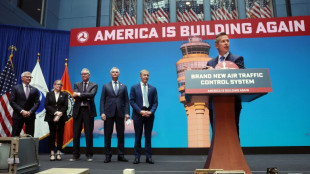
-
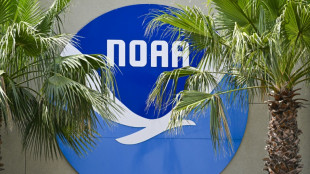 US climate agency stops tracking costly natural disasters
US climate agency stops tracking costly natural disasters
-
Germany slams Russian 'lies', France warns of war 'spectre' in WWII commemorations
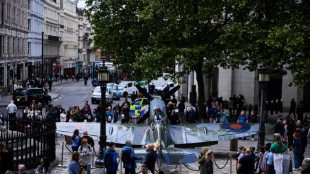
-
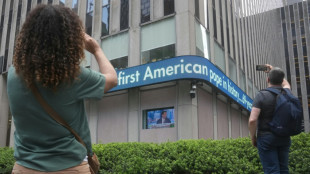 'A blessing': US Catholics celebrate first American pope
'A blessing': US Catholics celebrate first American pope
-
Trump hails 'breakthrough' US-UK trade deal
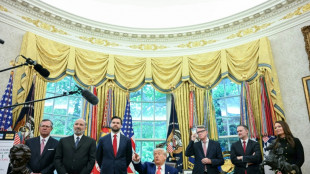
-
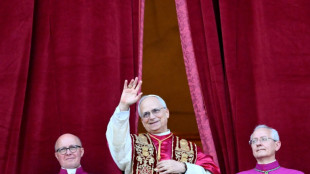 Cardinals elect first American pope as Robert Francis Prevost becomes Leo XIV
Cardinals elect first American pope as Robert Francis Prevost becomes Leo XIV
-
NHL Ducks name Quenneville as coach after probe into sex assault scandal
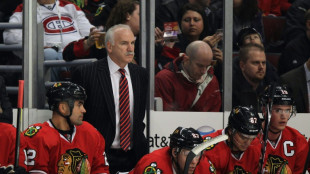
-
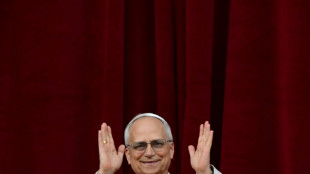 'Great honor': Leaders welcome Leo, first US pope
'Great honor': Leaders welcome Leo, first US pope
-
What is in the new US-UK trade deal?
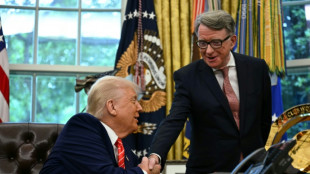
-
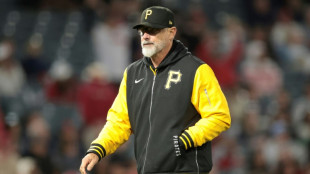 MLB Pirates fire Shelton as manager after 12-16 start
MLB Pirates fire Shelton as manager after 12-16 start
-
Alcaraz '100 percent ready' for return to action in Rome
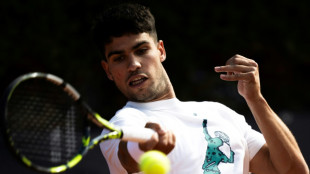
-
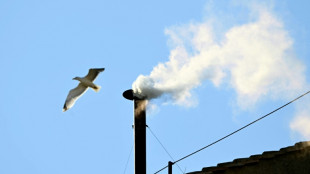 Prevost becomes first US pope as Leo XIV
Prevost becomes first US pope as Leo XIV
-
Andy Farrell holds out hope for son Owen after Lions omission
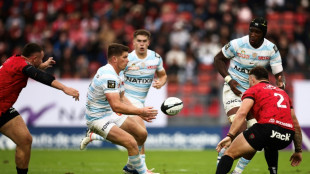
-
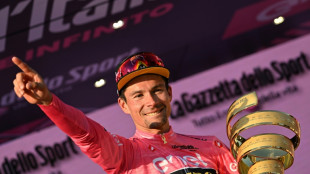 Roglic leads deep field of contenders at tricky Giro d'Italia
Roglic leads deep field of contenders at tricky Giro d'Italia
-
White smoke signals Catholic Church has new pope
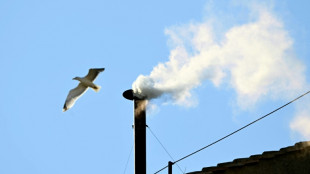
-
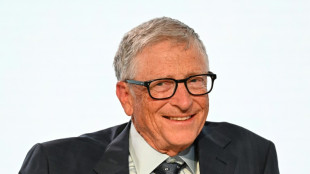 Bill Gates speeds up giving away fortune, blasts Musk
Bill Gates speeds up giving away fortune, blasts Musk
-
LA Coliseum, SoFi Stadium to share 2028 Olympic opening ceremony
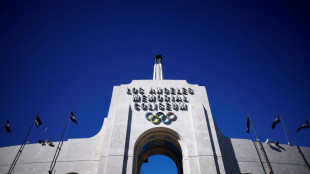
-
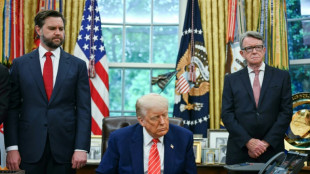 Trump unveils 'breakthrough' US-UK trade deal
Trump unveils 'breakthrough' US-UK trade deal
-
Andy Farrell holds out hope for Owen Farrell after Lions omission
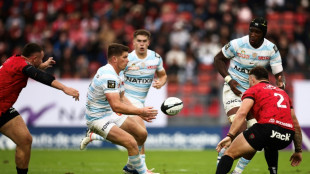
-
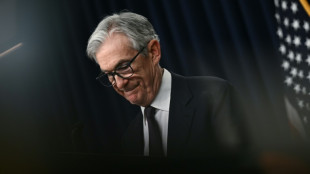 Trump calls US Fed chair 'fool' after pause in rate cuts
Trump calls US Fed chair 'fool' after pause in rate cuts
-
Stocks rise as US-UK unveil trade deal
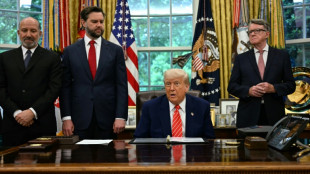
-
 UN says Israel school closures in east Jerusalem 'assault on children'
UN says Israel school closures in east Jerusalem 'assault on children'
-
Itoje grateful for 'tremendous honour' of leading Lions in Australia
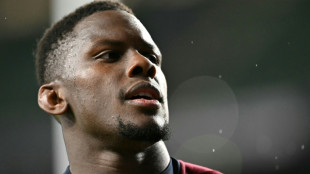

New world order? Pandemic and war rattle globalisation
Globalisation, which has both fans and detractors alike, is being tested like never before after the one-two punch of Covid and war.
The pandemic had already raised questions about the world's reliance on an economic model that has broken trade barriers, but made countries heavily reliant on each other as production was delocalised over the decades.
Companies have been struggling to cope with major bottlenecks in the global supply chain.
Russia's war in Ukraine has raised fears about further disruptions, with everything from energy supplies to auto parts to exports of wheat and raw materials under threat.
Larry Fink, the head of financial giant BlackRock, put it bluntly: "The Russian invasion of Ukraine has put an end to the globalisation we have experienced over the last three decades."
"We had already seen connectivity between nations, companies and even people strained by two years of the pandemic," Fink wrote in a letter to shareholders on Thursday.
But US Treasury Secretary, Janet Yellen, disagrees.
"I really have to push back on that," she told CNBC in an interview.
"We're deeply involved in the global economy. I expect that to remain, it is something that has brought benefits to the United States, and many countries around the world."
- 'An animal that evolves' -
Shortages of surgical masks at the outset of the pandemic in 2020 became a symbol of the world's dependence on Chinese factories for all sorts of goods.
The conflict between Russia and Ukraine has raised concerns about food shortages around the globe as the two agricultural powerhouses are among the major breadbaskets of the world.
It has also put a spotlight on Europe's -- and especially Germany's -- heavy dependence on gas supplies from Russia, now a state under crippling sanctions.
"A number of vulnerabilities" have emerged that show the limits of having supply chains spread out in different locations, the former director general of the World Trade Organization, Pascal Lamy, told AFP.
The global trade tensions have prompted the European Union, for instance, to seek "strategic autonomy" in critical sectors.
The production of semiconductors -- microchips that are vital to industries ranging from video games to cars -- is now a priority for Europe and the United States.
"The pandemic did not bring radical changes in terms of reshoring (bringing back business from overseas)," said Ferdi De Ville, professor at Ghent Institute for International & European Studies.
"But this time it might be different because (the conflict) will have an impact on how businesses think about their investment decisions, their supply chains," he said.
"They have realised that what was maybe unthinkable before the past month has now become realistic, in terms of far-reaching sanctions," said de Ville, author of an article on "The end of globalisation as we know it".
The goal now is to redirect strategic dependence towards allies, what he coined as "friend-shoring" instead of "off-shoring".
A US-EU agreement Friday to create a task force to wean Europe off its reliance on Russian fossil fuels is the most recent example of friend-shoring.
For Lamy, this shows "there is no de-globalisation".
Globalisation, he said, is "an animal that evolves a lot".
- Decoupling from China -
Globalisation had already faced an existential crisis when former US president Donald Trump launched a trade war with China in 2018, triggering a tit-for-tat exchange of punitive tariffs.
His successor, Joe Biden, invoked the need to "buy American" in his sweeping investment plan to "rebuild America".
"We will buy American to make sure everything from the deck of an aircraft carrier to the steel on highway guardrails are made in America," he said in his State of the Union speech.
One concept that emerged during the Trump years was "decoupling" -- the idea of untangling the US and Chinese economies.
The threat has not subsided, especially with China refusing to condemn Russia's invasion of Ukraine.
The United States has warned the world's second-biggest economy would face "consequences" if it provides material support to Russia in its war in Ukraine.
China already had other contentious issues with the West, such as Taiwan, the self-ruled democracy which Beijing has vowed to seize one day, by force if necessary.
"It is not in China's interest for now to go into competition with the West," said Xiaodong Bao, portfolio manager at the Edmond de Rothschild Asset Management firm.
But the war in Ukraine is a chance for China to reduce its reliance on the US dollar. The Wall Street Journal reported that Beijing is in talks with Saudi Arabia to buy oil in yuan instead of dollars.
"China will continue to build foundations for the future," Bao said. "The financial decoupling is accelerating."
Y.Kobayashi--AMWN